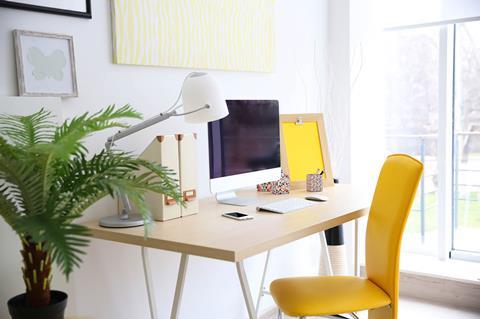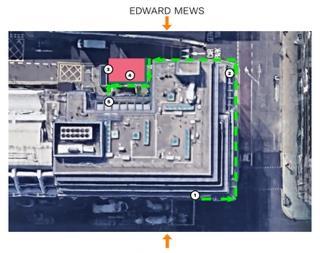With the government again encouraging us to work from home if possible, there is a renewed emphasis on our health and wellbeing and homeworking environment.

The challenges of the initial lockdown are likely to return and we will need better solutions to cope with these and adapt our homes and working patterns accordingly.
This new homeworking period is different from the last one due to the colder weather. Fuel poverty is a huge issue in the UK; so companies asking their employees to work from home should be mindful of this and create an appropriate response.
Apart from heating and thermal comfort, the fundamental prerequisites for productivity and wellbeing are: access to good air quality, lighting, hydration, scheduling breaks to spend time in nature and access to quiet spaces.
Maintaining good indoor air quality helps support focus, alertness and decision-making.
As CO2 builds up in a room, it leads to poorer decision-making, slower reaction times and increased tiredness, all of which affect concentration.
To improve air quality at home, keep windows slightly open, ventilate rooms frequently and hoover and dust regularly. A standalone air filtration unit (with HEPA and carbon filters) can remove indoor air pollutants and help keep air clean and healthy.
Proximity to a window and daylight can benefit our circadian rhythm, helping us feel alert in the day and sleep better at night. It can also boost our mood. If possible, position your workspace close to a window but take care to prevent screen glare, which can cause visual discomfort.

Also try to increase the lighting around your work zone with lamps, but be sure to choose lightbulbs with a high colour rendering index (CRI), which is a measure of how accurately a light source displays colours.
Staying hydrated throughout the day can boost our mood and performance. Scientific studies show that dehydration causes fatigue and lowers alertness.
Start each working day by filling a large jug with water, and try adding a high-quality natural charcoal filter to improve water quality.
Time in nature
Studies show that spending at least 120 minutes a week in nature is associated with good health and wellbeing, with one particular study of 20,000 adults in England suggesting that 120 minutes may be the critical threshold to experience significant health improvements. This could be one long walk or several shorter walks combined.
Having space for quiet contemplation and reflection away from our workspaces at home is important for our wellbeing. Create a calm zone in your home for meditation and contemplation away from areas for working, socialising and exercising. The emphasis should be on having a space free from screens, technology and anything that reminds you of work, so that you have somewhere to fully switch off.
While offices will always remain as important hubs for collaboration, innovation and productivity, until we can return to those environments on a more permanent basis, employers and employees will need to find new ways of not only working more productively from home, but also in healthier ways that do no compromise our wellbeing.
Olga Turner Baker is chief executive and co-founder of Ekkist






























No comments yet